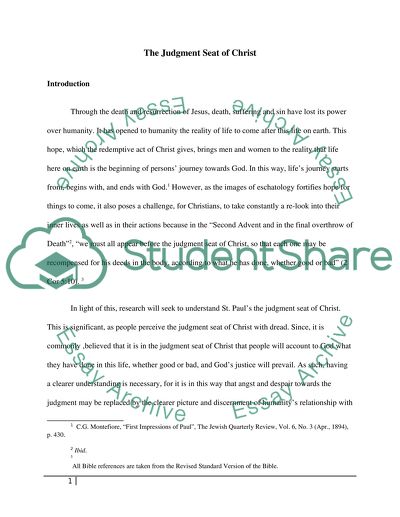Cite this document
(“The Judgment Seat of Christ Research Paper Example | Topics and Well Written Essays - 2750 words”, n.d.)
Retrieved de https://studentshare.org/religion-and-theology/1391536-the-judgment-seat-of-christ
Retrieved de https://studentshare.org/religion-and-theology/1391536-the-judgment-seat-of-christ
(The Judgment Seat of Christ Research Paper Example | Topics and Well Written Essays - 2750 Words)
https://studentshare.org/religion-and-theology/1391536-the-judgment-seat-of-christ.
https://studentshare.org/religion-and-theology/1391536-the-judgment-seat-of-christ.
“The Judgment Seat of Christ Research Paper Example | Topics and Well Written Essays - 2750 Words”, n.d. https://studentshare.org/religion-and-theology/1391536-the-judgment-seat-of-christ.


